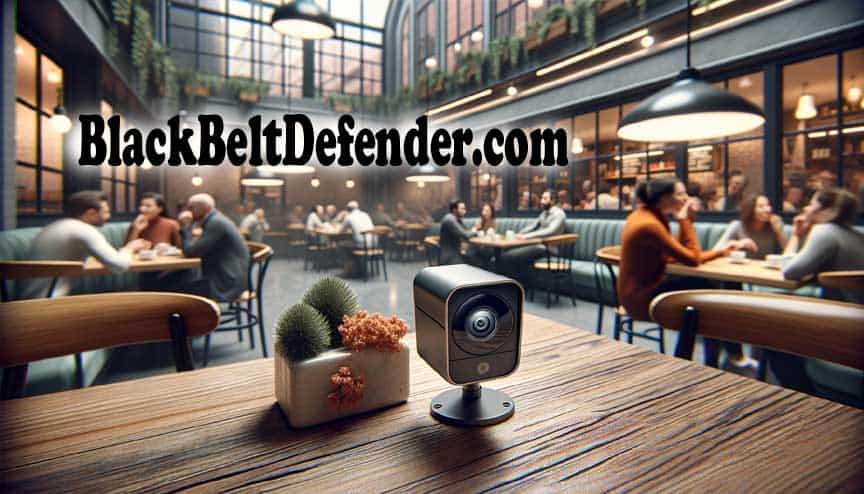
free shipping on orders over $49
We're having a 15% off sale on all our products. Enter your email below to be notified about future sales.




You’ve probably wondered at some point whether installing a hidden camera crosses a legal line. While you’re not alone in this curiosity, the answer isn’t as straightforward as you might hope. It hinges on various factors, including location, consent, and the intention behind the surveillance. In some cases, what you consider a safety measure could actually infringe upon someone’s privacy rights, leading to potential legal ramifications. Before you decide to set up that hidden camera, let’s explore the intricate legal landscape that governs its use. You might find that what’s permissible in one context could land you in hot water in another.
To navigate the murky waters of hidden camera legality, it’s essential you understand their undefined status in both the U.S. constitution and federal law. The essence of the matter rests on the reasonable expectation of privacy, a principle that varies greatly across different settings. While you might think of hidden cameras as tools for home security or video surveillance, their use without consent in private areas such as bathrooms, bedrooms, or hotel rooms is typically illegal. This highlights the importance of being aware of where and how these devices can be legally used to avoid infringing on someone’s privacy.
Moreover, the legal landscape regarding hidden cameras isn’t uniform across the board. State laws play a pivotal role in defining what’s permissible and what isn’t, making it imperative that you consult these or seek advice from legal experts before installing any form of surveillance equipment. Whether you’re considering hidden cameras for recording purposes or to bolster your home’s security, understanding these legal boundaries is key to ensuring that your surveillance practices don’t lead to legal consequences or violate privacy rights.
Understanding the rules around hidden cameras at home can help you navigate the complex laws and make sure you’re not infringing on anyone’s privacy. The legality of home surveillance hinges on several critical factors, including privacy laws, state regulations, and the concept of consent. Here’s what you need to know:
Before installing hidden cameras for home surveillance, understanding these key points can help you navigate the complexities of privacy laws, state regulations, and the importance of consent. This way, you ensure your security measures are in full compliance with the law, safeguarding both your safety and the privacy of others.
While you might think it’s fine to use hidden cameras in any public space, there are specific restrictions you need to be aware of. Generally, it’s legal to record in public places like parks, malls, and streets where there’s no expectation of privacy. However, privacy laws draw a clear line when it comes to private areas. Using hidden cameras in locations such as hotel rooms, restrooms, or changing rooms, where individuals have a reasonable expectation of privacy, is illegal.
The legality of using security cameras, like HD Eyeglasses Hidden Spy Camera with Built in DVR or engaging in covert recording hinges on the balance between public interest and personal privacy. Here’s a quick guide to understand where it’s typically legal or illegal to use hidden cameras:
| Location Type | Legal to Record? | Reason |
|---|---|---|
| Public Parks | Yes | Low expectation of privacy |
| Malls | Yes | Public setting |
| Streets | Yes | Public visibility |
| Hotel Rooms | No | High expectation of privacy |
| Restrooms/Changing Rooms | No | Privacy laws protect these areas |
Employers can implement hidden cameras in the workplace to monitor employees, though they must balance this with respect for privacy laws. While visible cameras are often preferred for promoting proper behavior, the use of hidden cameras isn’t off the table. However, managing the complex interplay of employer rights, employee privacy, and legal requirements necessitates a careful approach.
To deepen your understanding, consider these three key points:
Considering the complexities of workplace monitoring, it’s important to grasp the rules surrounding audio recording consent. Federal and state laws typically require consent for audio recording conversations, but the specifics can vary widely. Most states adhere to the one-party consent rule, meaning as long as you’re part of the conversation, you’ve got the green light to record. However, it’s a different ball game in states like California and Florida, where two-party consent laws reign supreme. Here, every participant must be aware of and agree to the recording.
It’s illegal to secretly record conversations without at least one person’s knowledge and consent. This rule holds even more weight when you’re considering recording in private settings, where expectations of privacy are high. Hidden cameras and audio devices can’t legally capture these moments without clear consent from those involved. Such actions can easily cross the line, turning into a blatant violation of privacy laws. So, before you hit the record button, make sure you’re up to speed with the consent laws in your jurisdiction. It’s not just about being considerate; it’s about staying on the right side of the law.
Are hidden cameras legal in private homes?
Generally, hidden cameras like the USB Charger Hidden Spy Camera with Built in DVR are legal in your private home for security purposes. However, they should not record areas where individuals have a reasonable expectation of privacy, like bathrooms or guest bedrooms.
Can I use hidden cameras in public places?
In most public spaces, it’s legal to use hidden cameras since there’s usually no expectation of privacy. However, be sure to comply with local laws that may restrict such surveillance.
Is it legal to record audio with hidden cameras?
Audio recording often requires consent due to stricter privacy laws. Be aware of state and local wiretapping or eavesdropping regulations before recording conversations.
Are hidden cameras allowed in the workplace?
Hidden cameras may be used in the workplace for security purposes, but not in private spaces like restrooms. Employers should also inform employees about any surveillance policies.
What penalties exist for illegal hidden camera use?
Penalties can range from fines to imprisonment, depending on local laws and the severity of the violation. Unauthorized surveillance can also result in civil lawsuits for invasion of privacy.
As always, be safe and be prepared.
See Also:
Black Belt Defender
1867 Caravan Trail #105
Jacksonville, FL 32216-2006
Call us toll-free: (800) 859-5566
Mon-Fri: 9:00 am – 5:00 pm EST
NH based, FL Warehouse
Online Orders: 24/7/365

